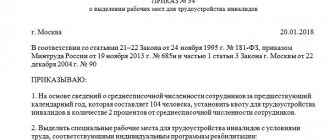Home / Labor Law / Responsibility / Material
Back
Published: 05/14/2016
Reading time: 9 min
0
9371
Fining is one of the most common methods of motivation used by employers in relation to their subordinates.
Numerous fines are taken for granted by both sides of the working relationship.
But is it legal? Let's find out!
- What does the law say about fining employees?
- Why do employers fine employees?
- What should a fined employee do?
- Employer's liability for fines to employees
- Alternative penalties
Employment contract
If you do not conclude an employment contract with an employee, the employer faces a fine of up to 100 thousand rubles. (Part 4 of Article 5.27 of the Code of Administrative Offenses of the Russian Federation). But not everyone knows that this fine can be applied even if there is an employment contract.
During inspections, the labor inspectorate examines the texts of the contracts themselves and looks to see whether all mandatory clauses are reflected in them (Article of the Labor Code of the Russian Federation). An error or inattention can cost the company the same 100 thousand rubles. They can also be fined under Part 1 of Art. 5.27 Code of Administrative Offenses of the Russian Federation) - for violation of labor legislation. Under this article, up to 50 thousand rubles will be charged. We have collected cases of such fines in a table.
Fines for errors in employment contracts
| Grounds for the fine | Arbitration case | Fine amount |
| A special assessment of working conditions or certification of workplaces showed that there are deviations from normal conditions, but there is no reference to working conditions in the employment contract | Decisions of the Moscow City Court of July 18, 2019 No. 7-7127/2019, 7-7207/2019, 7-7210/2019, 7-7126/2019, 7-7154/2019 | Up to 100 thousand rubles |
| The contract does not contain conditions for social insurance of employees | Decisions of the Moscow City Court of July 22, 2019 No. 7-8240/2019, 7-8244/2019, 7-8245/2019 and No. 7-8241/2019, 7-8243/2019 | Up to 100 thousand rubles |
| The contract does not specify the place of work | Decisions of the Trans-Baikal Regional Court dated 02/04/2019 in case No. 7-21-46/2019 and in case No. 7-21-44/2019 | Up to 100 thousand rubles |
| The agreement does not mention the payment of “northern” bonuses or regional coefficients | Decision of the Sverdlovsk Regional Court dated June 18, 2019 in case No. 72-698/2019 | Up to 100 thousand rubles |
| Error with setting the salary: the “northern” coefficient is included in the salary, and is not stated separately | Decision of the Perm Regional Court dated September 19, 2019 in case No. 7-1997/2019(21-1164) | Up to 50 thousand rubles |
| There is no additional agreement on changed conditions or working hours | Decision of the Perm Regional Court dated September 16, 2019 in case No. 7-1929/2019/21-1119/2019 | Up to 100 thousand rubles |
| There is no employee signature on the copy of the contract kept by the employer | Decisions of the Trans-Baikal Regional Court dated 02/04/2019 in case No. 7-21-46/2019 and in case No. 7-21-44/2019, Moscow City Court dated 07/18/2019 No. 7-7127/2019, 7-7207/2019, 7-7210/2019, 7-7126/2019, 7-7154/2019, Perm Regional Court dated September 19, 2019 in case No. 7-1996/2019(21-1163) | Up to 50 thousand rubles |
All these violations are formal and do not cause any harm to employees. However, the judges note that the threat in this case is not in the material consequences for employees, but in the employer’s neglect of his duties and the interests of the employee (decisions of the Moscow City Court dated July 22, 2019 No. 7-8240/2019, 7-8244/2019, 7-8245/2019 and No. 7-8241/2019, 7-8243/2019).
Types of material penalties
The second and often more effective group of measures of influence on an employee is monetary influence, that is, depriving him of a certain part of his salary. Such methods are often unofficial, since they are not provided for in current legislation. The most common ones include:
Fines
This is the deduction of part of the funds from wages in the form of punishment for committing any offense. Neither the Labor Code of the Russian Federation nor federal laws provide for the application of fines, therefore such actions of the employer are illegal. However, in the case of receiving black or gray wages, the employer may well deprive the employee of part of the money as a punishment.
Deprivation of bonus
It can be either full or partial, when the employee still receives a bonus, but in a smaller amount.
This method is more legal than the previous one, but requires a detailed development of a bonus system at the enterprise. It should include the conditions under which deprivation of the bonus is possible in some cases, for example:
- if there is a disciplinary sanction;
- in case of failure to achieve established performance indicators;
- subject to failure to fulfill labor duties, etc.
The main thing is that all these conditions are spelled out in the internal documents of the enterprise, and the bonus itself is not a mandatory and unconditional component of the salary. Otherwise, non-payment will be a violation of labor laws.
Bringing to financial liability
This method of punishment can only be used if the employee, as a result of committing any actions, caused damage to the property of the enterprise. Depending on the specific situation, compensation for damage can occur either in full or within the framework of the average monthly salary. In this case, the fact that a subordinate committed an offense must be documented.
Temporary reduction in social package

It may include additional services to provide rest and leisure for employees, for example: payment for lunches, a fitness room, the provision of vouchers, etc. Deprivation of these services as a punishment can only be done if the obligation to pay for them is not contained in the internal regulatory documents of the enterprise.
The application of each of these types of punishment requires the employer to be careful and comply with all established rules, since most of these methods are not entirely legal.
Work books and personal cards
Inspectors do not ignore other personnel documents: work books and personal cards. Companies in which employees who worked for more than 5 days did not issue work books were fined 50 thousand rubles (decisions of the Moscow City Court dated July 22, 2019 No. 7-8240/2019, 7-8244/2019, 7-8245/2019 and No. 7-8241/2019, 7-8243/2019).
50 thousand fines had to be paid by companies where employees did not have personal cards in form No. T-2 (decision of the Trans-Baikal Regional Court dated 02/04/2019 in case No. 7-21-46/2019 and in case No. 7-21- 44/2019).
The Labor Inspectorate fined the company the same amount for an error in a personal card: the HR specialist incorrectly indicated in it the data on the employee’s workwear, and not all of it was issued (decision of the Moscow City Court dated July 18, 2019 No. 7-7127/2019, 7- 7207/2019, 7-7210/2019, 7-7126/2019, 7-7154/2019).
Familiarization with documents
They can also be fined 30-50 thousand rubles for another formality - if the employee is not familiarized with the required document upon signature (Part 1 of Article 5.27 of the Code of Administrative Offenses of the Russian Federation). Here are the documents employers did not familiarize employees with in 2021 and received a fine for it:
- internal labor regulations (decisions of the Moscow City Court dated July 22, 2019 No. 7-8240/2019, 7-8244/2019, 7-8245/2019 and No. 7-8241/2019, 7-8243/2019 and the Trans-Baikal Regional Court dated 04.02 .2019 in case No. 7-21-46/2019 and in case No. 7-21-44/2019);
- order on hiring and termination of the employment contract (decision of the Perm Regional Court dated September 19, 2019 in case No. 7-1996/2019(21-1163));
- regulations on the conditions of remuneration and bonuses for employees (decisions of the Trans-Baikal Regional Court dated 02/04/2019 in case No. 7-21-46/2019 and in case No. 7-21-44/2019);
- vacation schedule (decisions of the Trans-Baikal Regional Court dated 02/04/2019 in case No. 7-21-46/2019 and in case No. 7-21-44/2019).
Types of disciplinary sanctions
The basis for applying such a penalty is the employee committing a disciplinary offense, that is, actions that violate labor discipline. Depending on the specific basis, disciplinary sanctions are divided into the following types:
Comment

This method of influence is the most loyal to employees, since it is verbal in nature and has an arbitrary form. Most often, a reprimand is applied to an employee who has committed a minor offense, for example, being late for work.
However, the employer can issue a remark in writing by issuing an appropriate order. There is no provision for recording comments in the work book.
Rebuke
This method is already more official in nature, since the reprimand is issued in documentary form and is imposed for committing more serious violations.
The basis for applying this measure may be a single or repeated minor violation of labor discipline by an employee: failure to perform or poor performance of his job duties (as specified in the job description), violation of the law or internal labor regulations, which occurred through his fault.
The reprimand is also not entered in the work book, but can be noted in the employee’s personal card. Within a year after its issuance, the employer has the right to cancel its decision and remove this punishment.
Dismissal
This punishment can only be applied if the employee commits violations provided for by law. Such cases include:

- a one-time violation by an employee of his work duties, if this violation is gross;
- repeated failure to fulfill duties if there is already a previously issued disciplinary sanction;
- making an unreasonable decision by the head of the organization, his deputy or chief accountant, if it resulted in damage to the employer’s property;
- the employee commits an offense that is grounds for loss of confidence in him or is considered immoral.
It is worth considering that different types of punishment cannot be applied to an employee for the same offense (for example, a reprimand and dismissal).
It is also important to follow the correct procedure, which applies to all types of disciplinary action. It consists in the fact that before punishment, the employer must prepare evidence of the employee’s guilt, demand a written explanation from him and issue an appropriate order.
It is also necessary to comply with the established time limits within which disciplinary action can be taken. They are six months from the moment the offense was committed and one month from the date of its discovery. If the employee has not violated labor discipline during the year, the reprimand or reprimand is automatically removed. Dismissal can only be challenged in court.
Time tracking
The Labor Inspectorate monitors how companies take into account the working time of employees (Article of the Labor Code of the Russian Federation). Those who do not keep such records at all (decision of the Perm Regional Court dated September 4, 2019 in case No. 7-1856/2019/21-1065/2019) and those who organized them incorrectly or do not keep them in accordance with the established forms risk receiving a fine. .
Thus, a company from Chita and its manager (decisions of the Trans-Baikal Regional Court dated 02/04/2019 in case No. 7-21-46/2019 and in case No. 7-21-44/2019) were fined due to the fact that the form of the worker’s report card time did not correspond to the official one (Decree of the State Statistics Committee of January 5, 2004 No. 1). And the capital company was punished for the fact that data on the driver’s actual time was not indicated in his waybills (decision of the Moscow City Court dated July 18, 2019 No. 7-7127/2019, 7-7207/2019, 7-7210/2019, 7-7126 /2019, 7-7154/2019).
Keep your timesheet and calculate your salary in one window
Briefing and medical examinations
A fine of 50 thousand rubles can await both those who neglect medical examinations and those who do not follow the necessary formalities (Part 1 of Article 5.27 of the Code of Administrative Offenses of the Russian Federation).
For example, an employer was fined for allowing drivers to work without pre-trip medical examinations (decision of the Moscow City Court dated July 18, 2019 No. 7-7127/2019, 7-7207/2019, 7-7210/2019, 7-7126/2019, 7- 7154/2019). By the same decision, the Moscow City Court found it lawful to impose a fine on the company for the fact that it had carelessly prepared logs about employees undergoing initial training. In particular, she did not enter data on the date of admission of the employee to independent work and the internship period.
Pay slips
The employer is obliged to issue a pay slip to each employee at the end of the month or upon dismissal (Article 136 of the Labor Code of the Russian Federation). Reviewers analyze them for a twofold purpose.
First, they check the dates of accruals and payments on payslips and payment orders. Having discovered discrepancies, they hold the company liable for late payment (Part 6 of Article 5.27 of the Code of Administrative Offenses of the Russian Federation; decision of the Moscow City Court dated July 18, 2019 No. 7-7127/2019, 7-7207/2019, 7-7210/2019, 7-7126 /2019, 7-7154/2019).
Secondly, controllers check whether the payslips themselves are drawn up correctly. If they do not contain comprehensive data on the components of the salary, the company is fined under Part 1 of Art. 5.27 Code of Administrative Offenses of the Russian Federation. For example, such a fine can be received if you do not indicate on the sheet the surcharge in the form of a “northern” coefficient (decision of the Sverdlovsk Regional Court dated June 18, 2019 in case No. 72-700/2019).
Types of punishment for workers and their legislative regulation
Punishment is one of the methods of motivating employees, which is aimed at instilling in them a sense of fear of certain administrative influence from the company's management.
The main purpose of applying punishment is to prevent the employee from committing actions that could cause harm to the employer.
Depending on the methods used to influence the employee, all types of punishment can be divided into two groups:
Intangible
They do not imply any financial impact on the subordinate and are presented in the form of disciplinary sanctions. Their types are established by Art. 192 of the Labor Code of the Russian Federation and are presented in the form:

- comments;
- reprimand;
- dismissals.
It is worth noting that these methods are listed in order of increasing severity.
The grounds for their use also depend on the exact degree of severity of the disciplinary offense.
Material
The main method of influence in this case is the monetary component, with the help of which the employee is punished for various offenses.
Examples of material penalties could be:

- fines;
- deprivation of bonuses (deprivation of bonuses);
- bringing to financial responsibility;
- temporary reduction in social package, etc.
Unlike disciplinary sanctions, which are regulated by labor legislation, material methods do not have such a legal basis.
For example, the introduction of a system of fines is not provided for by law at all and is therefore illegal, on the basis of which the employer can be held accountable.
The establishment of other forms of material punishment also has its own rules and features that must be taken into account.
Violation of deadlines
Employers are also fined for failure to comply with the deadlines established by the Labor Code of the Russian Federation. Most often we are talking about vacations and vacation pay. The employer must notify the employee about the vacation two weeks in advance (Article 123 of the Labor Code of the Russian Federation) and pay vacation pay three days in advance (Article 136 of the Labor Code of the Russian Federation).
Often, companies violate these deadlines not through their own fault, but because they accommodated an employee who applied for leave less than three days before. But the judges are convinced that this does not relieve the employer from liability (decisions of the Moscow City Court dated April 18, 2019 in case No. 7-4171/2019 and the Perm Regional Court dated September 16, 2019 in case No. 7-1930/2019/21-1120/2019 ).
So, when signing such an application for leave from an employee, you need to take into account that it threatens fines for the company and the manager personally.
Legal deductions from an employee's salary
Labor legislation contains a list of grounds when deductions from an employee’s wages can be made quite legally. Thus, monthly personal income tax is withheld from the employee’s earnings in the amount of 13%. The employer acts as a tax agent and has no right not to make tax withholdings.
If by his actions an employee caused direct material damage to the employer, then the specified amount may be recovered from him. In this case, there is a restriction: material damage is recovered within the limits of the employee’s average monthly earnings for the last 12 months.
The exception is cases when an agreement on full financial liability was signed with the employee, the employee voluntarily agreed to pay the damage in full, the damage was caused by criminal acts, etc. In such situations, the employee is recovered for all damage caused, which is not limited to his average earnings.
At the same time, it is allowed to make monthly deductions from employees’ salaries to pay off damages in an amount of no more than 20% of their salary.
Also, deductions may be made from the employee’s earnings based on writs of execution and court decisions. We can talk about administrative fines, debts on utility bills, loans, alimony, etc.
According to Art. 238 of the Labor Code, the employer can recover from the employee only direct actual damage, which consists of reducing the employer’s property and deteriorating its condition. Lost profits are not recoverable.
In addition, on the basis of Art. 137 of the Labor Code, it is allowed to withhold from the salary the amount of unearned advance payment, unused travel allowances, excessively accrued salary income, compensation for unused vacation, etc. At the same time, consent from the employee must be obtained to withhold these amounts.
Monetary irregularities
Inspectors check the timeliness of payments and the correctness of deductions. If the inspectors identify deductions that are not named in Art. 137 of the Labor Code of the Russian Federation, and the employer is unable to present a document confirming the employee’s consent to such withholding, the company will face a fine (decision of the Perm Regional Court dated September 19, 2019 in case No. 7-1997/2019(21-1164)).
Another basis for a fine is the compensation that the employer must accrue to the employee if he did not pay the money on time (Article 236 of the Labor Code of the Russian Federation). If such compensation is not paid on time, the company may also be fined 50 thousand rubles (Part 6 of Article 5.27 of the Code of Administrative Offenses of the Russian Federation). And it doesn’t matter what kind of money was not paid on time: salary, payment upon dismissal, or something else (decisions of the Moscow City Court dated July 22, 2019 No. 7-8240/2019, 7-8244/2019, 7-8245/2019 and No. 7-8241/2019, 7-8243/2019, Perm Regional Court dated September 19, 2019 in case No. 7-1997/2019(21-1164) and dated September 18, 2019 in case No. 7-1995/2019(21-1162) ).
“Fines at work”: what penalties from wages are legal?
No matter how much we are against it, fine systems are widely used by many employers. The reasons for “tightening the screws” are varied: fines can be applied for being late, for smoking in an unspecified place or, in principle, for the very fact of smoking, for failure to fulfill a sales plan, for violating the dress code, ignoring the instructions of the boss, leaving the workplace prematurely... By the way, Today, with a ruble they can punish anyone at work for anything. One gets the impression that employees of organizations where a fine system is used even have to ask to go to the toilet.
Whether to work in such conditions or not is everyone’s choice – it all depends on how much your pride allows you to do so. Another question is the legality of the application of such sanctions by the employer. But it just raises serious doubts, because the labor legislation, despite the lobbying of the issue by the leaders of the “new formation” since the beginning of the 00s and the moment of the adoption of the Labor Code, has not been introduced to the rules that would allow fining employees. Meanwhile, this stops few employers - financial demotivation systems are stable and work like clockwork. Careerist.ru figured out how it works and in what cases fines are really illegal.
Legal deductions
Let's start with the fact that the employer has the right to apply to the employee legally. These, however, are not penalties at all, but, to be correct, deductions from wages. So, in addition to taxes, the employer has the right to take deductions from your salary according to writs of execution and other enforcement documents sent to him by bailiffs - these are administrative fines, debts on utility bills and loans, alimony, and other debts. In addition, by virtue of Art. 137 of the Labor Code, the following can be deducted from an employee’s salary at the initiative of the employer:
- the amount of unpaid advance;
- unused travel allowances;
- amounts excessively accrued due to accounting errors;
- the amount of compensation for used vacation, which was received on account of the calendar year not yet worked;
It is interesting that this article does not allow the specified amounts to be withheld arbitrarily - the employee must agree to the withholding, otherwise they are possible only through the court.

The third category of legal deductions from wages are deductions related to direct actual damage caused to the employer in cases where an employment or collective agreement imposes financial liability on the employee or team. Under such damage, according to Art. 238 of the Labor Code refers to a decrease in the employer’s property, a deterioration in its condition, as well as the emergence of a need for expenses aimed at restoring property. Such damage, by virtue of Art. 248 of the Labor Code, is reimbursed by the employee or team by order of the employer, that is, directly by his order. Penalties in this case cannot exceed the average monthly salary, which constitutes the limits of the employee’s liability, according to Art. 241 TK.
Hit the premium
However, employees’ salaries rarely consist only of a fixed salary - in the vast majority of cases, the lion’s share of the salary is made up of bonuses, the payment of which is tied by an employment or collective agreement to the achievement of specific indicators or compliance with labor discipline. Since labor legislation does not prohibit this, such bonuses become a real field for employer fines - by including them in your salary, the office management leaves itself “room for maneuver” with your salary. “A blow to the bonus” is quite legal from the point of view of the Labor Code and can be used for lateness, early leaving work, failure to meet production standards, failure to fulfill a plan, violation of deadlines established by the employer, etc.

Some offices use flexible systems of “deductions” from the bonus, depending on the degree of payment fulfillment, the total time of delays during the month, the number of clients accepted or contracts concluded, etc. The conditions for bonuses and deductions from bonuses can be standardized by internal regulations - such a system can be called transparent. Another question is if such a system is not recorded anywhere... However, deductions from the premium, referred to as penalties, can be applied even if the established requirements are met. The fact is that the bonus is always paid out of profit: no profit - no bonus.
Fines as fines
Any other fines, referred to as an employment contract in reality as fines or material penalties of a disciplinary nature, are prohibited by law. Article 192 of the Labor Code defines an exhaustive list of disciplinary sanctions, the application of which to one’s own personnel is permissible. These include reprimand, reprimand and dismissal - the employer is not given the right to withhold funds worked by the employee . However, the widespread use of bonus systems, envelope schemes and the application of civil law to labor relations make punitive measures very common.
Thus, receiving a salary in an envelope gives the employer “all the cards”, because in this case its payment is not officially recorded anywhere, so it will not be possible to physically prove the fact of payment, and therefore the deduction of a fine. In this case, workers are absolutely not protected - the law remains on their side, but the lack of evidence of the existence of an employment relationship does not allow the employer to be held accountable.

Cases of formalizing labor relations through the conclusion of civil contracts, for example, through the conclusion of a work contract or a contract for the provision of services, deserve special attention. Such relations are regulated not by the Labor Code, but by the Civil Code. But it does not prohibit the application of fines to the party to the contract that violates its obligations. So, if you, as the performer of the work, have not fulfilled any terms of the contract, and he himself has provided for penalties for this, do not doubt that the employer will do them. Another question is whether it is worth working for him.
Please note that if such collections are not stipulated in the contract, then the employer does not have the right to make them arbitrarily - in this case, deductions are permissible only through the court. Naturally, the employer will not comply with this requirement and will fine you of his own free will, as is always the case, regardless of the conditions and under what contract the cooperation takes place. In this case, the employee will have to contact law enforcement agencies.
What to do?
Having noticed an illegal deduction from your salary, you should not immediately blame the employer - perhaps the deductions are indeed legal. To do this, you should contact the company’s accounting department, perhaps even in writing, in order to receive a detailed written answer. If the deductions in it are not due to the requirements of the executive document, and the accounting department refers solely to the order of the manager, you should contact him. Moreover, preferably also with a written statement, which should reflect not only a request to explain the essence of the penalty, but also to justify its illegality, citing specific norms of labor legislation . If you are unable to draw up such a statement correctly on your own, contact a lawyer or trade union.

Naturally, management is aware of the penalties that are made on its orders. And if the grounds for them do not comply with the law, you should not expect management to refer to them in an official response. In this case, the accounting department will receive an order to return the withheld funds, or the management will write a very vague dubious wording in the response, or even refuse to provide a response.
If the money has not been returned, the issue of its return is fundamental, and the employee is not afraid of losing his place of employment - he must boldly contact the labor inspectorate and the prosecutor's office. At the same time, in your application, do not forget to refer to the fact that you do not want your identity as an applicant to become known to the employer. Supervisory authorities will carry out the necessary checks, most likely reveal the fact of illegal deductions, issue the necessary orders for the return of the taken money and fine the employer. How far you are willing to go in protecting your labor rights depends entirely on you and your determination.
But when deciding this issue, remember that you should not expect anyone to respect your rights if you yourself are not able to protect them.
Post your resume Add a vacancy
Mistakes during dismissal
Mistakes in dismissing employees can also be a reason for a fine of 100 thousand rubles. But here the employer has a chance to avoid liability.
Judicial practice is based on the rule: if a mistake in dismissal or disciplinary action becomes a reason for a labor dispute (i.e. the employee does not agree with the fact of the violation, the procedure for dismissal, etc.), then the court considers such disputes according to the rules of Civil Procedure code. Such errors do not entail administrative liability for the employer (decision of the Magadan Regional Court dated 05/06/2019 in case No. 12-78/2019, 7-25/2019, Resolutions of the Supreme Court of the Russian Federation dated 09/13/2019 No. 19-AD19-6 and dated 18.01. 2019 in case No. 19-AD18-32).
But this does not mean that you can draw up dismissal documents carelessly. After all, if a mistake does not lead to an individual labor dispute, it may well result in a fine of 100 thousand rubles for the company.
Thus, the court approved a fine for the employer due to the fact that he “early” (without waiting two weeks from the date of filing the application) issued an order to dismiss the employee. The employee did not contest her dismissal, which enabled the Labor Inspectorate to issue a fine. In addition, the company was made aware that it had sent the employee a notice of the need to come for a work book or agree to receive it by mail not on the day of dismissal, but later (decision of the Trans-Baikal Regional Court dated 02/25/2019 in case No. 7-21-90 /2019).
What does the law say about fining employees?
While quite popular, fining is illegal.
According to the Labor Code of the Russian Federation, the employer has the right to apply 3 penalties to the employee:
- dismissal;
- comment;
- rebuke.
All these measures did not find much response in the hearts of personnel officers, since a reprimand and reprimand are accompanied by a large number of formalities, and dismissal is an overly drastic measure, suitable only for absolutely unsuitable workers.
Whether it’s fines: for misconduct, the employer deprives the employee of a bonus, but not all, but a certain part of it, depending on the type of misconduct.
Meanwhile, the labor code does not provide for monetary penalties as punishment for the offending employee . Therefore, all attempts by the employer to stop lateness, absenteeism and prolonged smoking breaks of office workers using a system of fines are illegal!
Labor legislation implies the use of monetary penalties only in cases of direct damage to the organization’s property by an employee.
Taking advantage of the inaccuracy of the Labor Code articles, many organizations abandoned fines in favor of deprivation of bonuses, i.e., motivated deprivation of bonuses. This procedure is formalized by order of the manager, noted in the bonus regulations and justified for the guilty person.
In this case, a constant-variable part of the salary is collected as a fine for the employee’s violation of the provisions of the job description.
This technique is completely legal.
An employee from whose salary a fine was collected by order of the manager has the right to go to court demanding compensation not only for the deducted share of wages, but also for moral damages.










